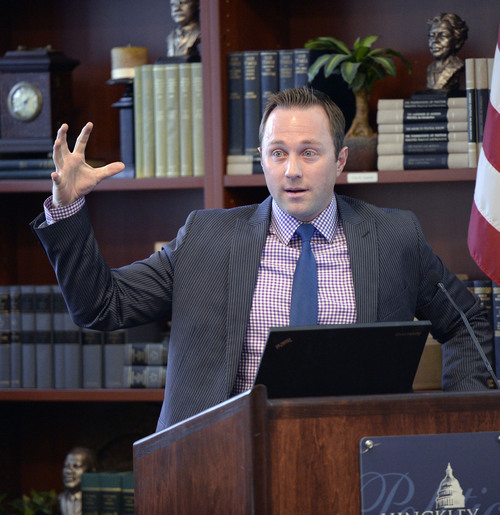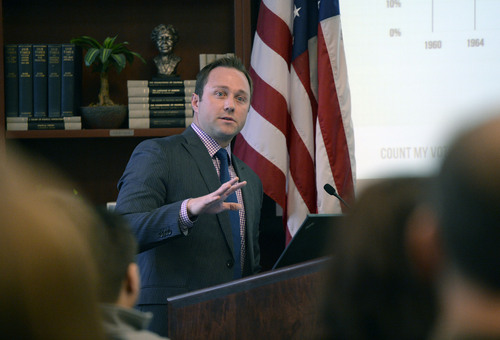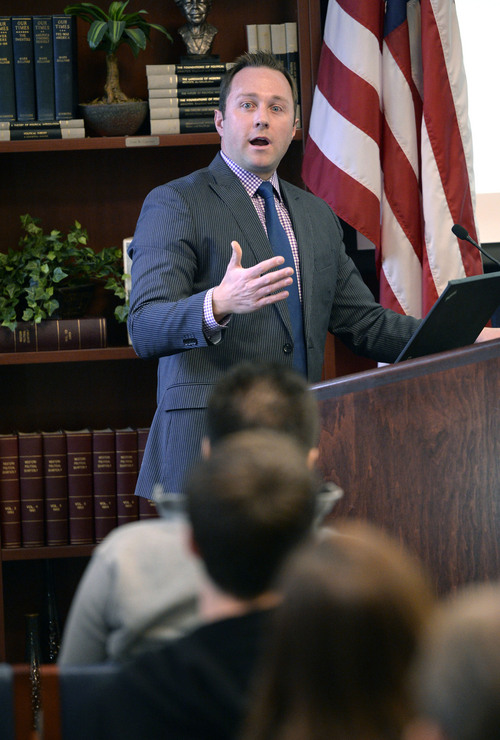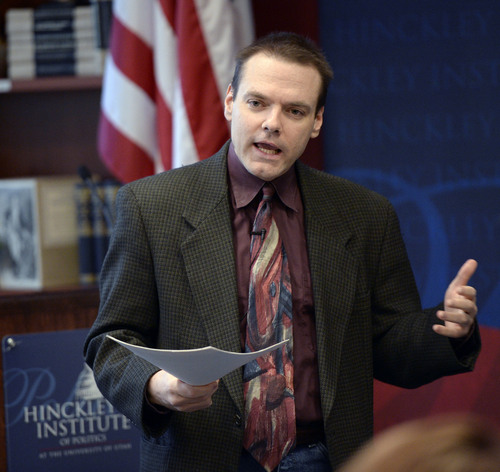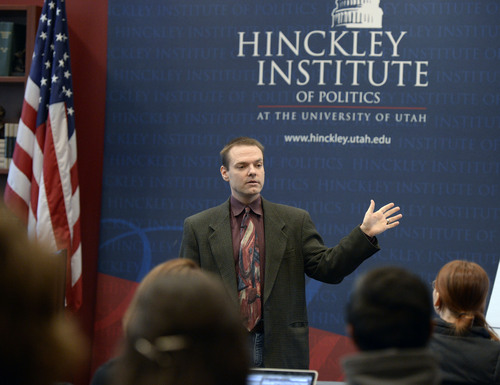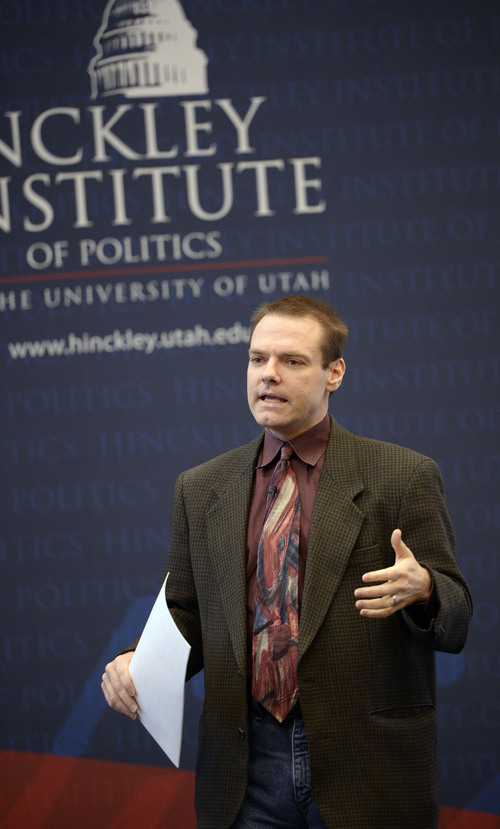This is an archived article that was published on sltrib.com in 2014, and information in the article may be outdated. It is provided only for personal research purposes and may not be reprinted.
Leaders of several public education groups, including the Utah Education Association and Utah PTA, said voters are not being represented through Utah's current political process, and endorsed an election reform movement promoted by the Count My Vote group.
The education leaders said elected officials are too beholden to small groups of delegates who are chosen at party caucuses and go on to nominate candidates and, as a result, don't pay enough attention to the average Utahn.
"It places too much power in the hands of too few people," said Kim Burningham, a member of the State Board of Education. "Those few can be and often are manipulated by small special interest groups. That is true in both the Democratic and Republican caucuses."
Count My Vote is currently gathering signatures to put an initiative on the 2014 ballot that would change the way candidates for office are chosen. Instead of the current system, where delegates selected at neighborhood caucuses often choose the party's nominees at a convention, the Count My Vote proposal would require candidates to square off in direct primaries.
Organizers argue the current system makes it difficult for people to participate, and the delegates who are chosen do not represent the average Utah voter.
On education issues in particular, polls conducted for the nonpartisan Utah Foundation in 2010 and 2012 found that Utah voters overwhelmingly said that public education was the most important issue for the state. But Republican state delegates listed it as their 11th priority in 2010 — behind gun control issues, grazing and getting the United States out of the United Nations.
In 2012, delegates ranked education as the fifth most important issue.
"Occassionally … as we present the needs of public schools, we are told by some legislators that while our points are well-taken, they are responsible only to the 60 delegates" who chose them, said Jodee Sundberg, a board member in the Alpine School District. "That is where many of our legislators take their direction, because their re-election is controlled not by the people of Utah, but by the 60 delegates in each area of the state."
James Humphreys, spokesman for the group Protect Our Neighborhood Elections, which opposes the Count My Vote initiative, said it's not surprising that Count My Vote reached out to the education groups, because, he said, Count My Vote needs help gathering signatures and the education groups played a key role in a referendum to repeal school vouchers and an attempt to get an ethics initiative on the ballot.
But a group as big as the Utah Education Association, he said, has been able to get plenty of delegates elected over the years, "or they can participate in buying elections like other special interests do."
About half of the state budget goes to public education. Humphreys said that won't change if Count My Vote passes.
"They're getting as much funding as the state currently has available without a major tax increase on citizens," he said.
Humphreys also said that Count My Vote's education backers broke state law by using state resources and state time to advocate for the initiative. Humphreys pointed to an email sent to everyone in the Washington County School District during school hours, encouraging them to pick up a Count My Vote petition packet at their school offices and support the initiative, which, Humphreys said "is so inappropriate it's not even funny."
He said he planned to turn over the email to the lieutenant governor's office for potential action.
Sharon Gallagher-Fishbaugh, president of the UEA, said the goal for educators is to broaden the opportunities for average citizens to have a voice in their democracy.
"We are not [currently] broadening this democracy; we are narrowing it," she said. "And when you narrow it, you open the door for special interest groups to spend bunches and bunches of money to sway the issue."
Count My Vote executive director Taylor Morgan said the group has gathered about 40,000 of the more than 100,000 signatures needed to get on the ballot. But complicating matters for Count My Vote is that they must gather the signatures across at least 26 of the state's 29 Senate districts.
Humphreys said his group is drawing a line in the sand, and pushing hard to stop Count My Vote in four districts, keeping the initiative off the ballot.
Count My Vote has raised more than $810,000, compared to $9,222 raised by Protect Our Neighborhood Elections.
Twitter: @RobertGehrke Trib Talk: Caucus or Count My Vote?
12:15 p.m. • Except for the decade between 1937 and 1947, Utahns have relied on neighborhood caucuses and party conventions to choose which candidates reach the ballot. Caucus supporters say the grassroots process allows under-financed political underdogs to have a shot at election, just like those with fundraising strength. But opponents say the current system draws more people with extreme views, giving fringe candidates the edge at convention and leaving more moderate politicians on the sidelines. On Tuesday, James Humphreys, with Protect Our Neighborhood Elections, and Taylor Morgan, with Count My Vote Utah, join Jennifer Napier-Pearce to present arguments for and against keeping the current caucus-convention system. Join the discussion by sending questions and comments to the hashtag #TribTalk on Twitter and Google+. > sltrib.com


